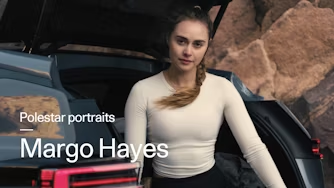Circularity through the power of art: Meet Emily Medbury
In collaboration with Polestar, Melbourne-based artist Emily Medbury has created and unveiled the Re:Purpose Collection. Comprising of three bespoke sculptures, the piece stands as a powerful testament to the principles of circular design, innovative thinking, and celebrates the sustainable design elements of the Polestar 3.
When looking at this collection of works, it’s difficult to believe that this is Medbury’s first foray into sculptural art. Though, it should come as no surprise. Founder and Creative Director of Anemoia Studio, Medbury is a leader in the realm of sustainable design. In unveiling her sculptural debut, she reminds us of the transformative potential and new worth of items often deemed insignificant and useless – a principle intrinsically linked with Polestar’s design ethos.
Each sculpture is made from commonly discarded materials and tells its own unique story. The first two sculptures act as a warning, and of a vision of a better way: a ghost fishing net salvaged from the ocean, discarded aluminium cans, a discarded satellite, all repurposed into sculptures both starkly beautiful and truly sustainable. The final piece is a reminder that the answers we need might already exist, told through the use of natural fibre flax to highlight the limitless possibilities of an infinite closed loop system.
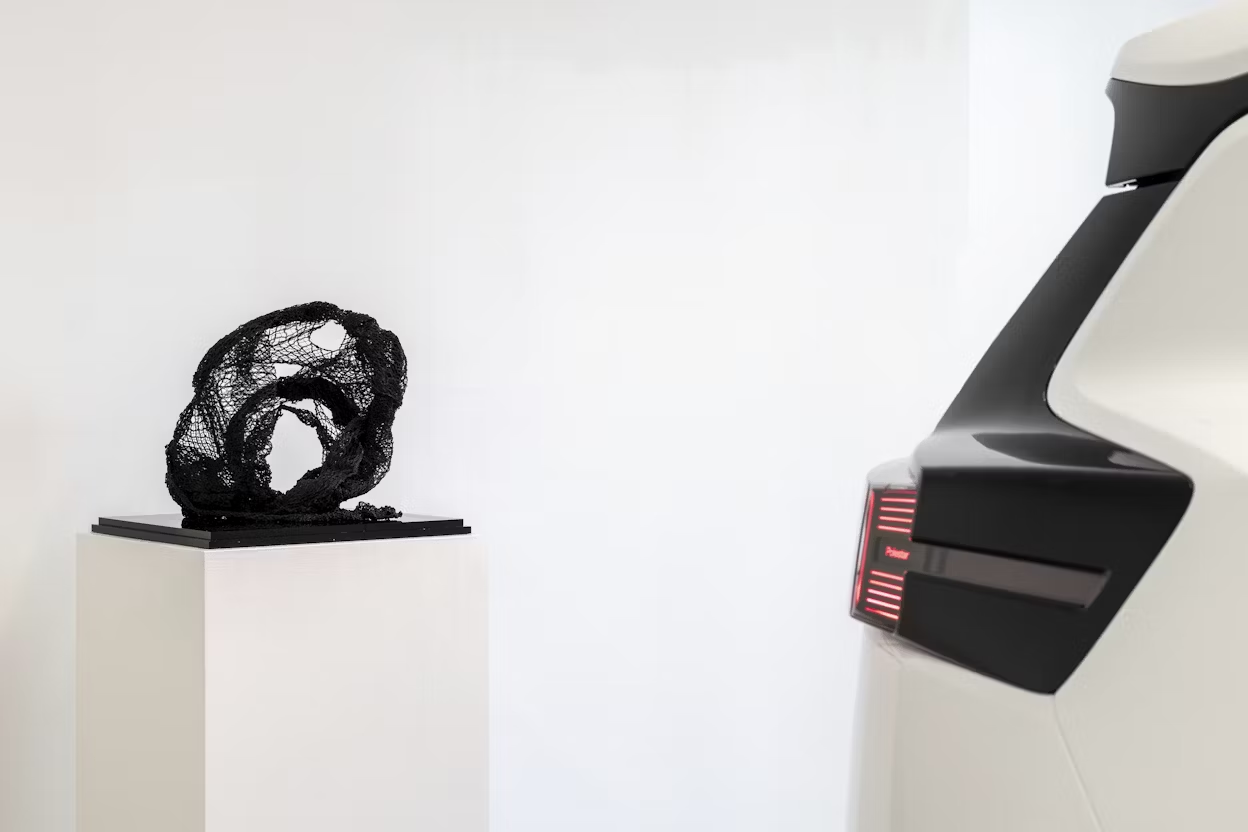
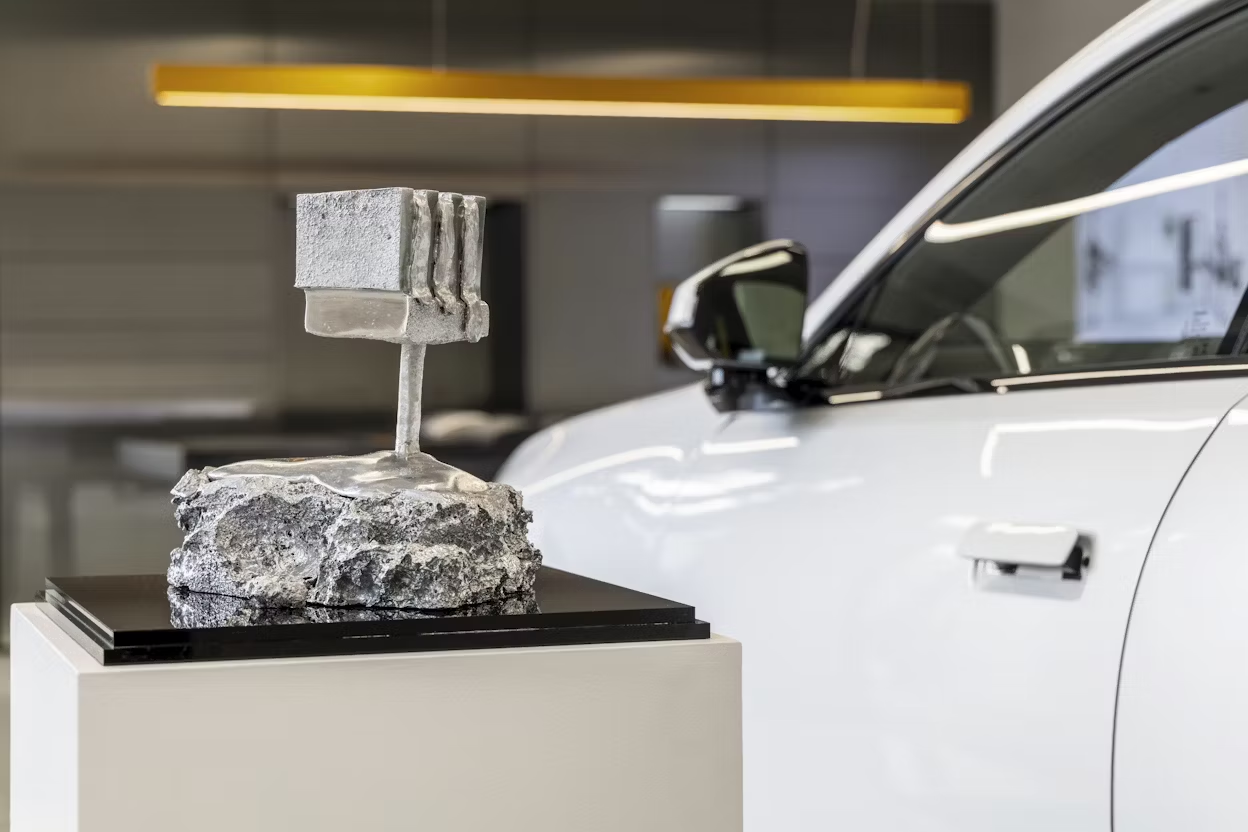
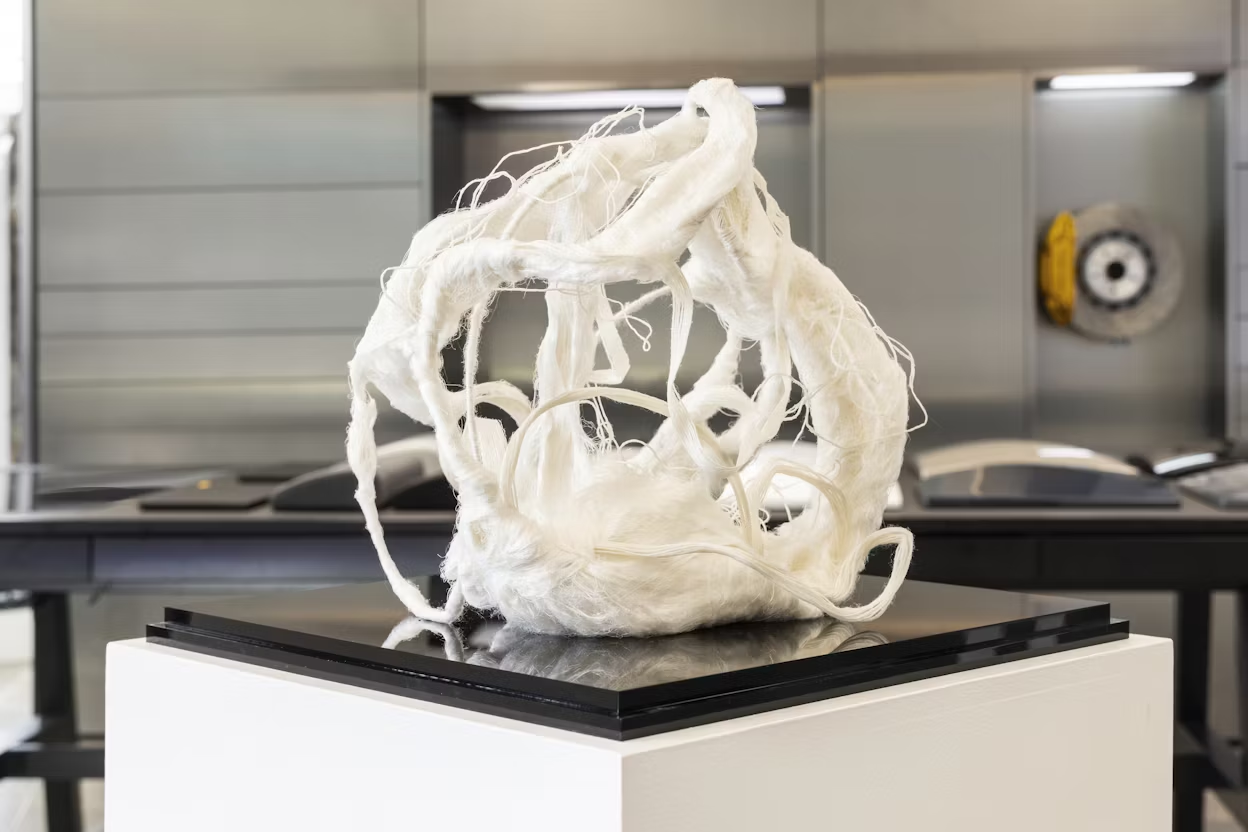
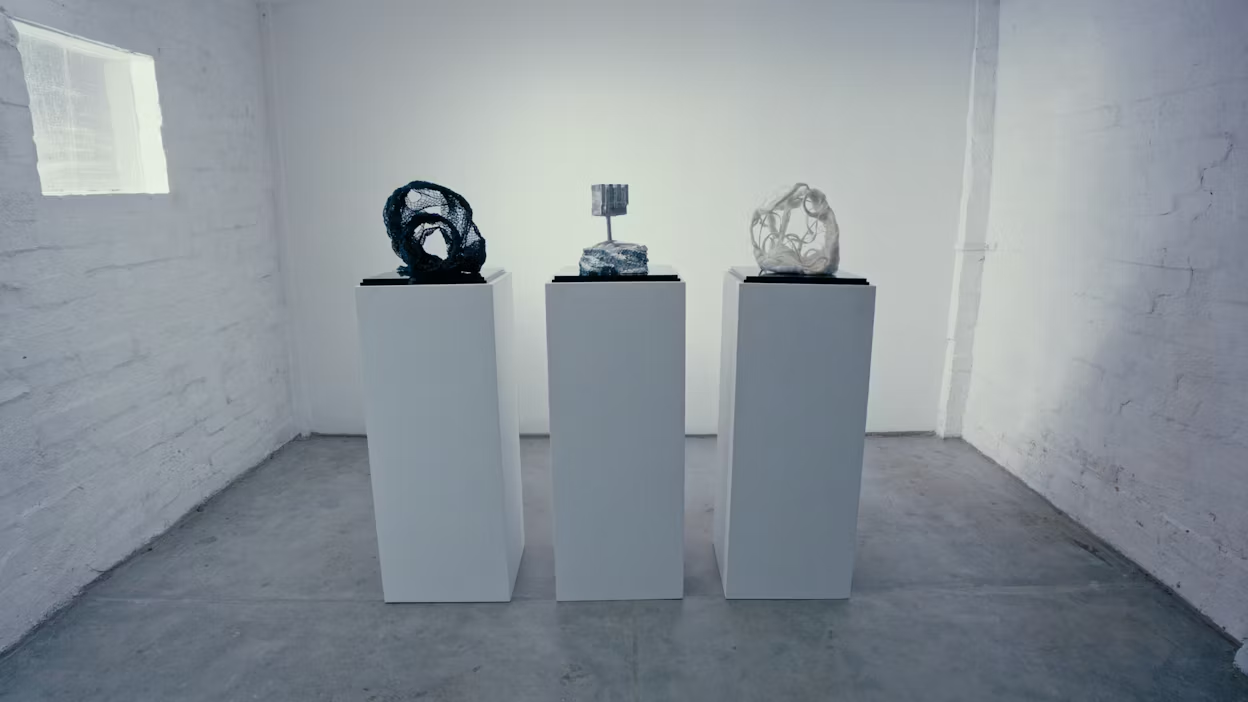




01/04
The collection as a whole presents a vision of a possible future – one where exploring unconventional perspectives on the use of materials becomes the norm, and innovative thinking on new ways to use and reuse helps reduce our impact on the environment.
It’s a vision shared wholeheartedly by Polestar. Not only are the materials featured in Medbury’s work central to the artistic narrative, but they are also integral design components of the Polestar 3. This includes the carpets made from 100% ECONYL® polyamide, derived from discarded fishing nets and other plastic waste, as well as the interior aluminium deco panes, for which 80 percent of the raw material used comes from post-industrial waste.
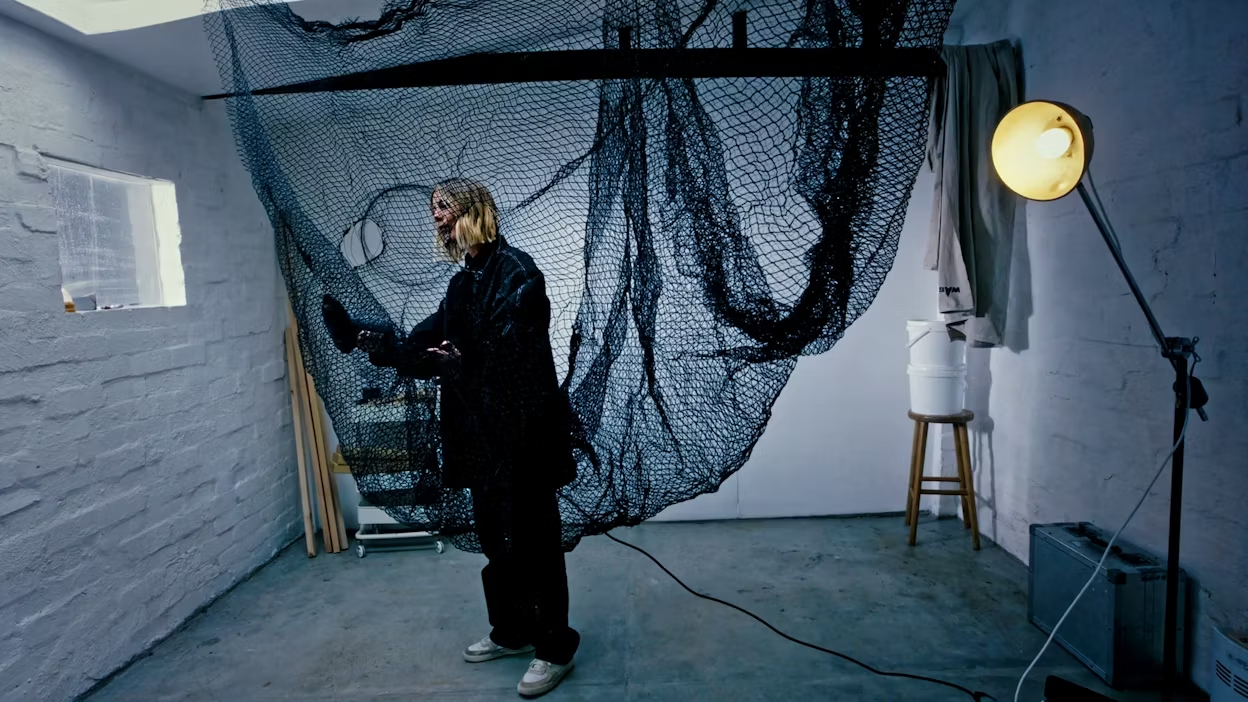
We must integrate the old with the new, and foster a world that builds on what already exists.
Every Polestar model, including the Polestar 3, is an important stepping stone in the Polestar 0 project – to produce a truly climate-neutral production car by 2030. As a company at the forefront of the circular design and engineering movement, Polestar intends to galvanise innovation and challenge both ourselves and the wider automotive industry.
“Circularity is a key pillar of Polestar’s sustainability commitment, and we are constantly striving to source new and innovative materials that reduce our environmental impact on the planet and people,” says Jonathan Williams, Head of Marketing at Polestar Australia.
“Our collaboration with Anemoia Studio shines a light on the progress we’ve made towards greater sustainability, while also capturing the attention of audiences to question the broader impact of the automotive industry and the need for a deeper commitment to circular processes throughout.”
For more information on the Re:Purpose Collection, visit https://www.anemoiastudio.au/projects







